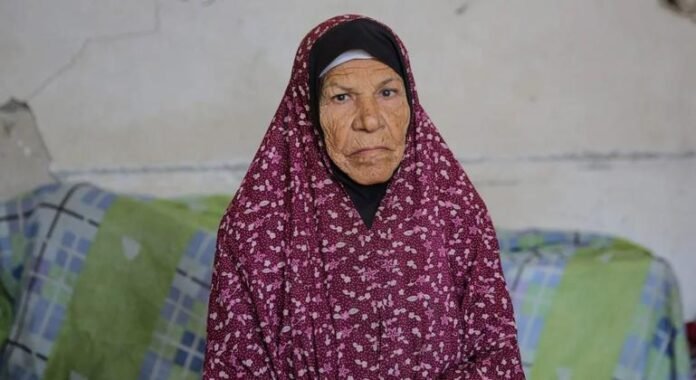“This war changed my life forever, took away my education and my friends.”
These are the words of 14-year-old Leanne Nahal, who at such a young age has seen five wars in Gaza and been forced to be displaced several times.
“We used to be able to buy food, fruit and clothes,” said Lian Nahal, “now eight of us are forced to live in makeshift tents.” t.”
Lian Nahal was once the most promising student in her class, but in late 2023 her life was completely disrupted after the war. Many of his friends and classmates left Gaza and went abroad to continue their education.
“Now I am sitting in a tent, my books, school uniform and bag are all gone. It feels like my future, my education and my childhood have been taken away from me,” he said.
“My dream is that this war will end and I will grow up to be a history teacher and tell everyone the story of Palestine and our endless pain.”
This war has affected all people in Gaza, whether they are little girls like Nahal or elderly women like Thuraya al-Ghorani.
“My life has been shaped by displacement,” said 85-year-old Thuraya Al Gourani.
“I still remember that day in 1948, when my father told us to leave Al Fallujah quickly, when the Israeli armed forces had left everything behind and fled.”
Since then Al Gourani has seen seven wars.
He said every time his family was displaced, it was never known if their home would be intact when they returned.
He said, “Every time it seems as if our dignity is under attack. The current war is the most merciless and cruel and the longest of all wars so far.”
During the devastating war in Gaza, UN Women heard the harrowing stories of countless women and girls from all walks of life.
Nevin, who works as a paramedic, had to go through the pain of losing 80 members of his family in one day in November 2023.
But despite this he continued his work. They have faced repeated displacement and horrific events, such as the destruction of the Kamal Advan Hospital and the bombing of the UNRWA shelter in Jabalia, where they had taken shelter.

Amani, a psychiatrist at the Gaza Ministry of Health, had been working to comfort people suffering from years of war and conflict. Before the war, his dream was to get a PhD with a scholarship. But in May 2024, Amani and her four children were killed in an Israeli airstrike.
Ibtisam uses a wheelchair, but no longer has a proper bed to sleep on, and is unable to walk on Gaza’s ruined, impassable streets.
Due to the lack of resources needed to help people with disabilities at the shelter, he is even separated from his mother.
Meanwhile, Palestinian women and girls in the West Bank face serious challenges and burdens.
Kafa Abu Harb, a 49-year-old widow, mother of three. He tells the story of the difficult challenges he faced while living in the West Bank under Israeli occupation.
Kafa Abu Harb said, “(Israeli) soldiers will enter our homes, invade our privacy, drag us in for questioning and abduct our children without any reason or warrant.” “
“One of my sons is still in jail, we are going to put up with this without complaint or trial?”
Although Palestinian women and girls are facing extremely cruel conditions, they have not given up hope.
“We don’t want much—just the right to live in peace, the right to breathe without fear,” he said.
“Palestinian women have borne the brunt of this suffering, yet we are still here. Still standing on our feet. All we have left is our strength.”

